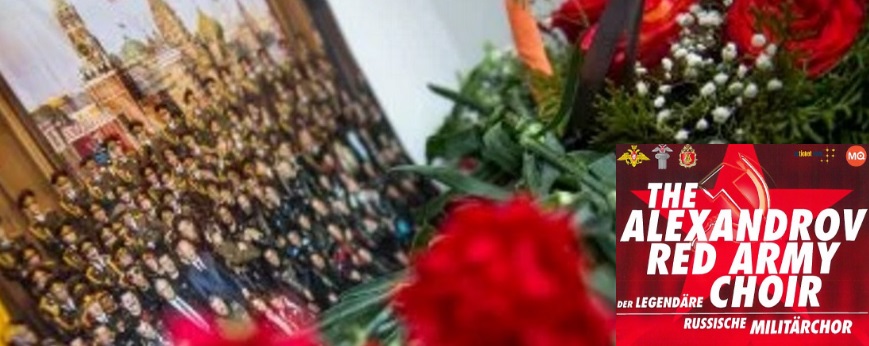Mostly red carnations were heaping up outside the Moscow building where one of the globe’s most outstanding choirs, the Alexandrov Ensemble, was based.
But a source told TASS earlier that one of the key theories as to why the plane crashed “is that foreign objects penetrated the engine,” adding that other possible causes, such as pilot error and technical failure, are also being investigated.
Russia has been engaged in an armed conflict with the radical Islamic group ISIS, also known as Islamic State or Daesh. Although Russian authorities insist the crash isn’t a terrorist attack, experts indicate the investigation will not rule out any possibility.
But officials downplayed speculation that the crash might have been caused by a bomb planted on board or a portable air defense missile. President Vladimir Putin’s spokesman, Dmitry Peskov, told reporters that an attack isn’t a likely scenario.
Transport Minister Maxim Sokolov, who oversaw the rescue efforts, said investigators were looking into a possible technical fault or pilot error as the most likely reasons behind the crash.
The Tu-154 plane crashed into the Black Sea minutes after takeoff from Sochi’s airport, killing all 92 people on board. The plane, transporting 64 members of the world famous Red Army Choir, humanitarian workers and several media crews to take part in Christmas and New Year’s celebrations was en route to Syria.
Only two minutes after taking off in good weather, the disaster struck. The plane suddenly disappeared from radar Sunday morning local time taking off from the Adler airport, reported state-run news agency RIA Novosti. The plane had departed from Moscow and was destined for the Russian Hmeymim airbase in Latakia, Syria.
Some 3 500 people, 43 ships and 182 divers have been sweeping a vast crash site, while several drones and submersibles also have been involved in the search, AP reported. Rescue teams have recovered bodies and numerous body fragments, including the body of the pilot, which have been flown to Moscow for identification.
The body of the Tu-154 pilot in command, Roman Volkov, has been lifted by divers from the sea bottom, a source in the law enforcement agencies told TASS on Monday.
Aviation experts said the crew’s failure to communicate any technical problem and a large area over which fragments of the plane were scattered, both point at a possible explosion on board.
Evidence of a bombing of a Syria-bound flight would highlight Russia’s vulnerability to attacks despite its success in Syria after the victory of Aleppo. Thus some experts have remained skeptical, noting that the crew would have reported any technical glitch.
“Possible malfunctions … certainly wouldn’t have prevented the crew from reporting them,” Vitaly Andreyev, a former senior Russian air traffic controller, told RIA Novosti, adding that an “external impact” was the most likely reason.
Russia’s main domestic security and counter-terrorism agency, the FSB, said it has found “no indications or facts pointing at the possibility of a terror attack or an act of sabotage on board the plane.”
The plane departed from the Chkalovsky military airport just outside Moscow. Russian media pointed at lax security at Chkalovsky where the plane was based. Alexander Gusak, a former chief of the FSB special forces unit, hinted at security breaches at Chkalovsky and said that even a much more secure Sochi airport could be vulnerable.
“It’s possible to penetrate any facility. It depends on your skills,” Gusak told Dozhd TV.
While ISIS is being increasingly forced out of its strongholds, the terrorist group has proven in the past that it can bring down planes. In October 2015, a Russian passenger plane crashed over Egypt, killing all 224 people aboard, after an explosive device was planted in the plane’s luggage compartment. A local affiliate of the Islamic State group claimed responsibility.
But the FSB has ruled out an attack and said that investigators were looking into bad fuel, pilot error, alien objects stuck in the engines or equipment failure.
“It’s difficult to grasp the scale of that tragedy,” Moscow city’s culture department head Alexander Kibovsky said in televised remarks. “They were raising pride for our culture, our country, across the entire world.”
Pavel Kogan, the director of Moscow State Academic Symphonic Orchestra, described the choir as “a symbol of the country”. As word of the crash spread Sunday, mourners placed bouquets of flowers outside the ensemble’s Moscow headquarters. “It was impossible to imagine what happened, even in a nightmare,” he said, according to Snob online publication.
The choir was founded in 1928 by composer and conductor Alexander Alexandrov, and after his death in 1946 was led by his son, Boris Alexandrov. Alexandrov, who headed the choir for more than 40 years, made it famous worldwide.













No comments.
By submitting a comment you grant Free West Media a perpetual license to reproduce your words and name/web site in attribution. Inappropriate and irrelevant comments will be removed at an admin’s discretion. Your email is used for verification purposes only, it will never be shared.